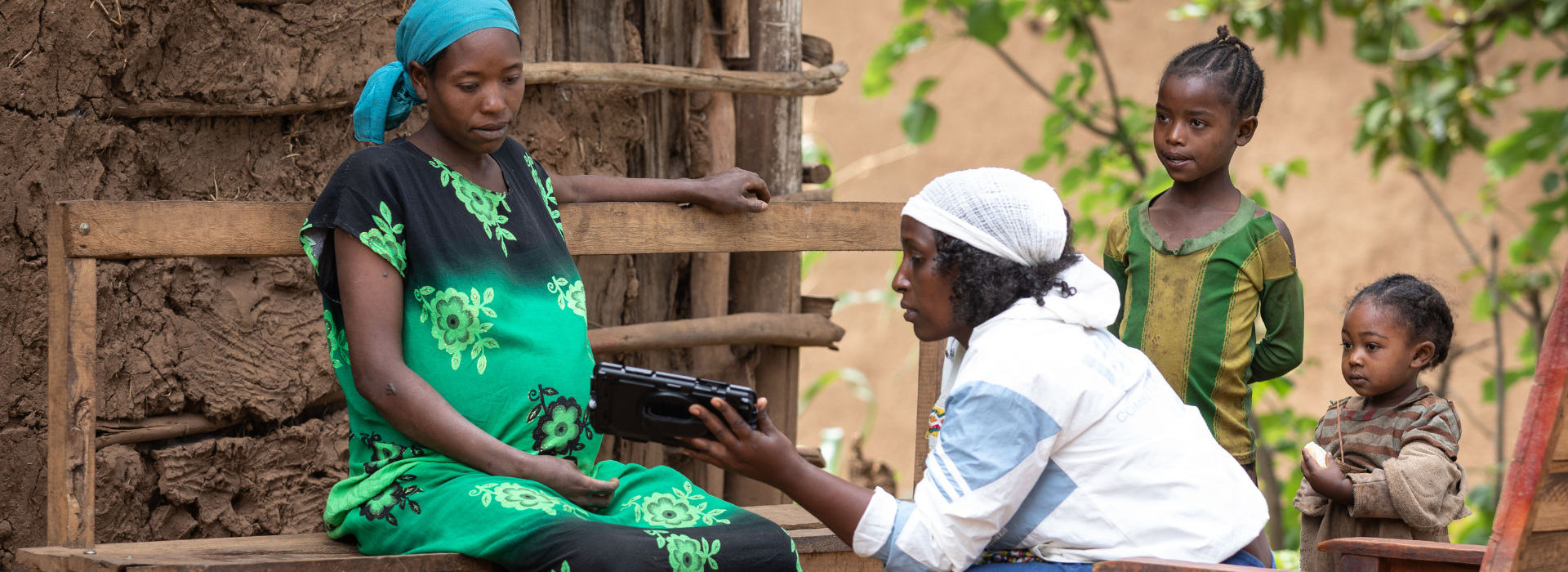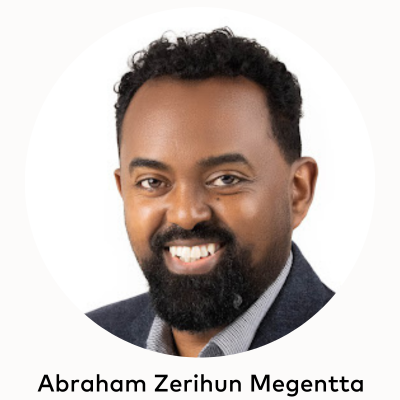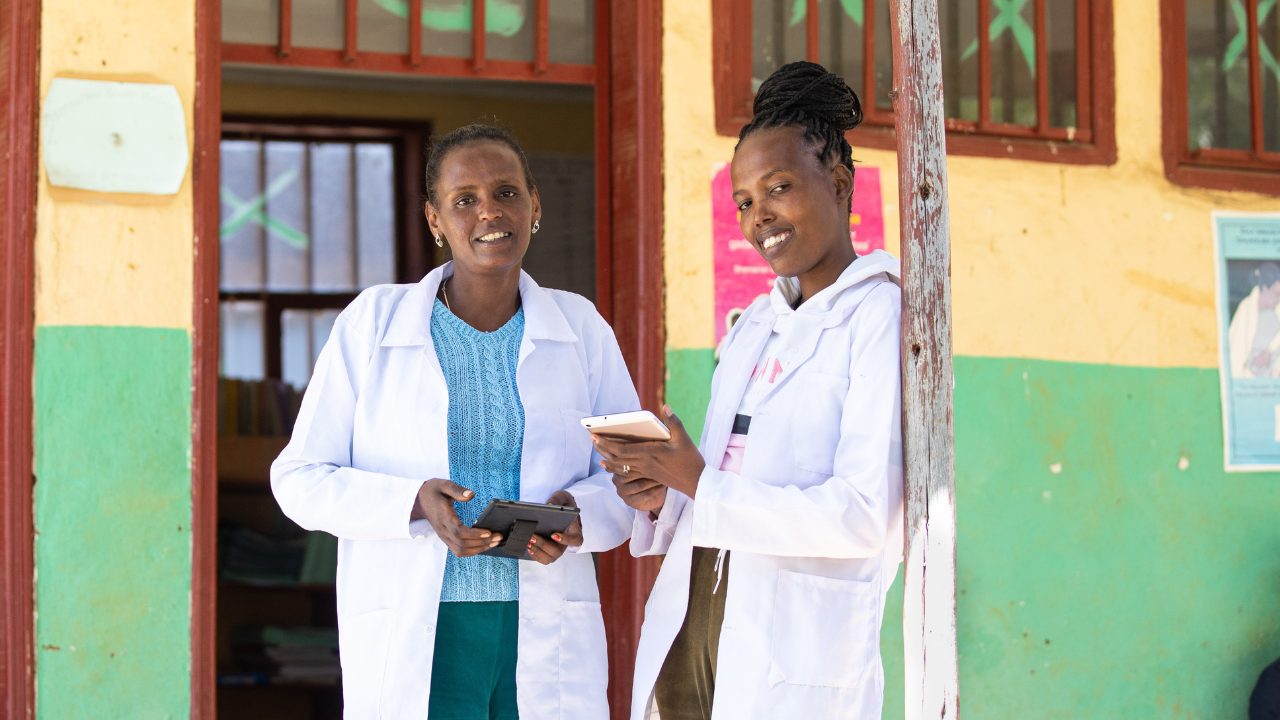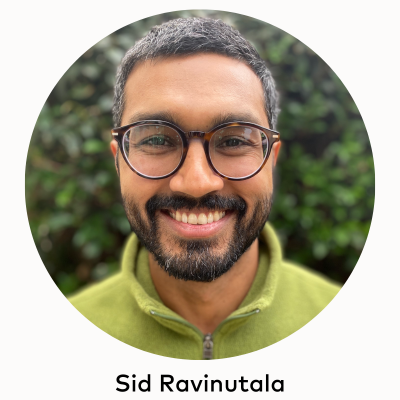AI to the rescue: Empowering Ethiopia's remote health workers
April 23, 2025 | By Maggie Sieger
In 2024, the nonprofit Last Mile Health, which trains and supports community health workers in Ethiopia and three other African countries, collaborated with the Ethiopian Ministry of Health to set up 10 local call centers embedded within the country’s health system. These call centers are designed to provide real-time mentoring and back-up support to these health extension workers — the primary health care providers for about three-quarters of the country — when they come across complicated or unusual symptoms.
The call centers began receiving a steady flow of inquiries, but Last Mile Health soon noticed an emerging challenge.

“The medical and community health advice they were providing was not standardized across the various districts that were providing support,” says Abraham Zerihun Megentta, Last Mile Health’s Ethiopia country director. “We thought AI could help.”
In Ethiopia, vulnerable patients — whether young pregnant women, older people with chronic health problems or parents with sick children — most likely seek help from these community health workers. More than 40,000 workers are responsible for providing health care for anywhere from 2,500 to 3,000 people each. But even after a year of training, it is impossible for these workers to memorize hundreds of pages of guidelines, training content and diagnostic protocols, particularly for unusual cases. That’s where artificial intelligence comes in.
Last year, after an extensive search for a technical partner to help bring its well-developed AI vision to life, Last Mile Health found a strong collaborator in IDinsight. Another nonprofit with deep African roots, IDinsight uses data and AI to improve lives and has been working for five years to deploy AI to solve seemingly intractable problems. For example, IDinsight has used AI to support the Ministry of Health in Togo to optimize contraceptive programs and built an AI question-answering service that answers nearly 60,000 health-related questions from mothers in South Africa.
With the leadership of the Ethiopia Ministry of Health and guidance from 19 ministry experts, they began to develop an AI-powered tool. With IDinsight’s technical support, Last Mile Health created HEP Assist, a health extension program assistant designed to offer real-time medical guidance for Ethiopian health workers. The tool helps community health workers provide better care to patients and promptly refer complicated cases to nearby health facilities that are better equipped to manage them.

Community health care workers in Ethiopia serve as many as 3,000 people each. A new AI-powered tool is helping them provide better care to patients. Photos courtesy of Last Mile Health.
And in December, IDinsight was one of five companies that won Mastercard’s Center for Inclusive Growth and data.org’s Artificial Intelligence to Accelerate Inclusion Challenge, a global call for AI solutions that advance inclusion and economic empowerment. Each winning company received $200,000 to develop and scale its solution as well as technical expertise and mentorship from the data.org and Mastercard teams. It will help IDinsight and Last Mile Health turn their concept of an AI-assisted health care workforce into a reality.
Pivoting to more local decisions
IDinsight was created 15 years ago to help policymakers and NGO leaders make evidence-based decisions. It has evolved to include empowering decision-makers at all levels, from government officials to community health workers. This is IDinsight’s second foray, after the South Africa MOMConnect platform, into using AI to help improve the overall care of patients.

“Over time, we rethought who a decision-maker can be,” says Sid Ravinutala, the organization’s chief data scientist. “We moved from a high-powered, single individual to the full community health worker workforce. Multiple times a day, they are making decisions about what treatments a person should receive, whether they should be referred to a higher-level health center — decisions that not only impact the specific patient but can also impact an entire family or village.”
By focusing on the power of data to inform smaller, more frequent decisions made by individuals on the ground, IDinsight and Last Mile Health are hoping to ensure Ethiopians receive better health outcomes, including lowering maternal mortality, earlier diagnosis of diseases and reducing unnecessary referrals to hospitals.
“All of that not only will improve health outcomes but also will lower costs and reduce strain on hospital systems,” Ravinutala says.
Catalyst for change
The plan is to pilot HEP Assist at all 10 existing call centers. This includes a case management system and a question-answering service trained on comprehensive Ethiopian Ministry of Health guidelines. The community health workers call into center agents, who can ask the AI to do things such as connect a list of seemingly random symptoms to come up with an accurate diagnosis or determine whether a patient needs to be referred for specialized or emergency care.
In addition to helping workers on the frontlines, call center agents also are learning new AI skills, which should lead to more efficient and effective work processes as well as new career pathways, Ravinutala says.
"AI replaces tasks, not jobs," he says. "These kinds of opportunities where you are helping highly skilled knowledge workers just be more effective is where I see AI being most useful. It’s designed to augment, not replace, the critical role of community health workers.”
The long-term plan is to provide community health workers with direct access to the AI tool through mobile devices. The tool’s natural language capabilities make it easy to train new users to ask the sorts of questions that get good results.
Both organizations want to adapt and scale the program to help community health workers in other countries across sub-Saharan Africa and potentially even in other parts of the world.
"Once we build a solution for Ethiopia, it can be rolled out in Malawi, in Uganda, in Kenya — and suddenly it becomes a widely available open-source tool," Ravinutala explains. "I’m excited about enabling the entire community health worker ecosystem globally."

Event
2025 Global Inclusive Growth Summit
The Global Inclusive Growth Summit, hosted by the Mastercard Center for Inclusive Growth, is coming to Washington, D.C., on April 24. Check out the agenda on the Global Inclusive Growth Summit website and sign up to get unlimited access to on-demand content from the summit.
Sign up here